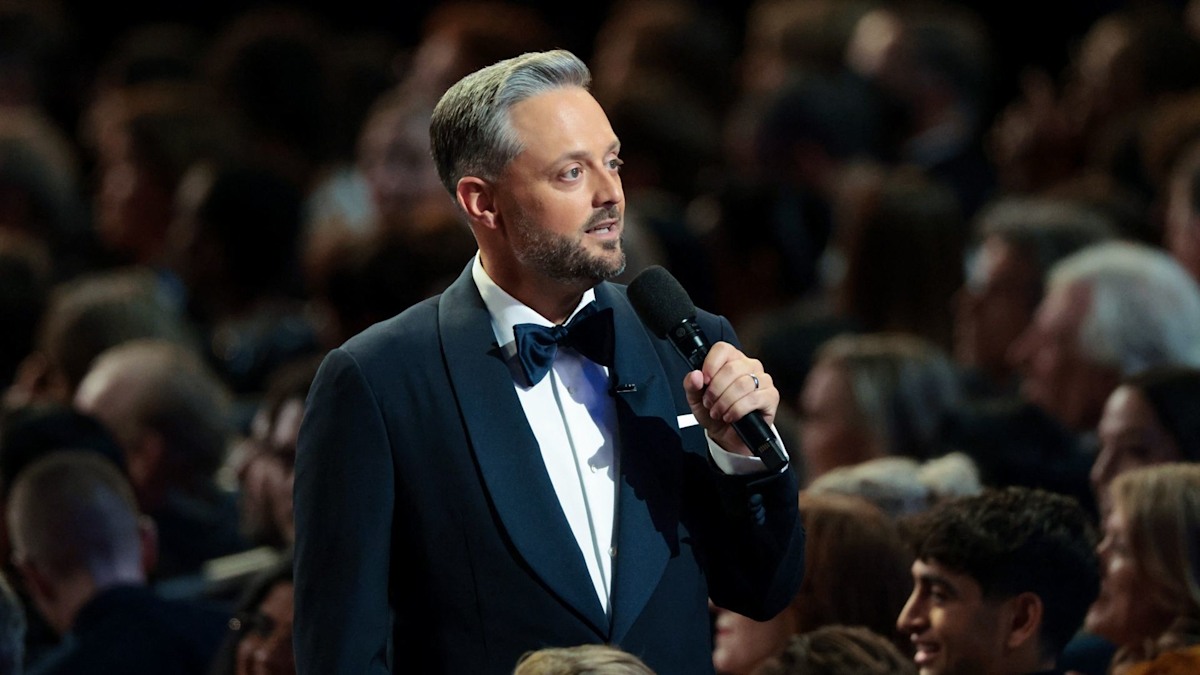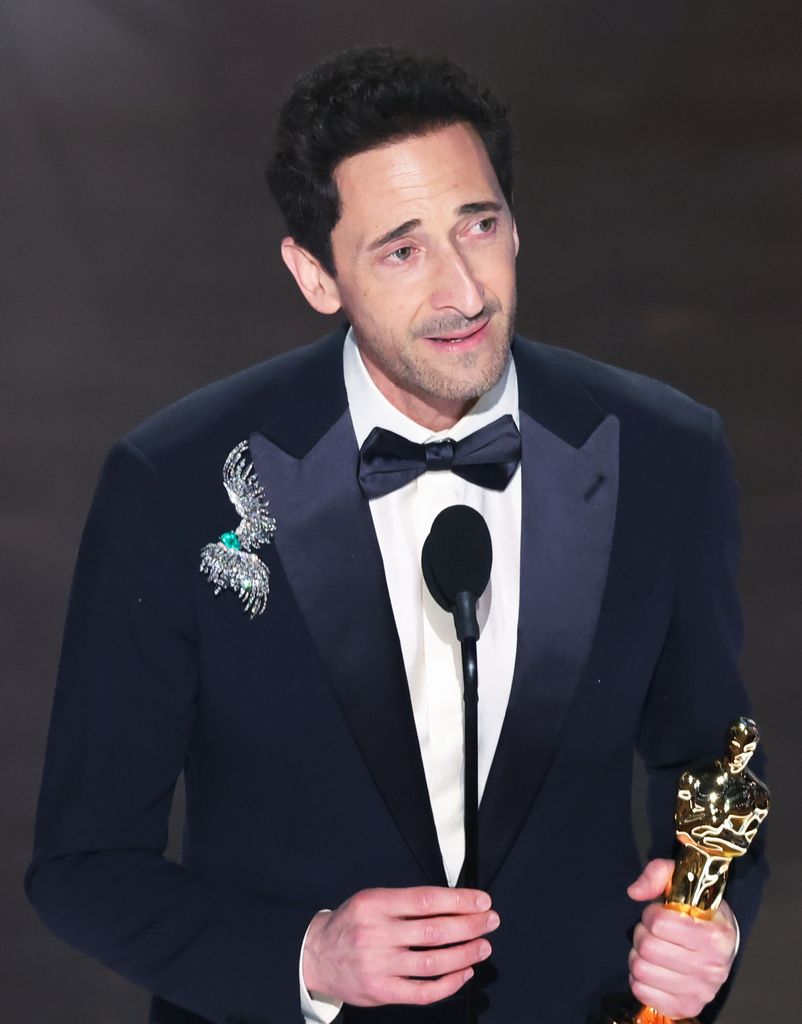Emmy Awards host Nate Bargatze offered a creative, charitable and sometimes panic-inducing solution to keeping award-winners from giving overly-lengthy speeches this year. The comedian and two-time Emmy nominee, 46, revealed early on in the award show broadcast that he would be donating $100,000 to the Boys and Girls Club, a national non-profit organization that provides after school care to children. But there was a catch: Winners’ speeches couldn’t last longer than 45 seconds, and could either increase or decrease the final dollar count on Bargatze’s check.
“If you stay at 45 seconds, it stays at $100,000,” Nate explained in his opening speech. “Every second you go over 45 seconds, we will deduct $1,000 away from the Boys & Girls Club … if you go under, we will put $1,000 a second back on. … Don’t go crazy, though, ’cause like, I am paying for this. So like, some of you go over a little, some go under. Do the right thing.”
While 45 seconds may seem like plenty of time, winners often find that it flies by after thanking their loved ones, colleagues and networks, and often trying to squeeze in a personal story about how much the award means to them. Nate acknowledged that he had no intention of downplaying their successes: “I know how hard you guys have all worked to get here. I’m not trying to take anything away; 45 seconds, that’s what you got. And if you want to do more than that, do it on social media later. More people are going to see it there anyway,” he joked.
Through the ceremony, some celebrities raised the donation to over $100,000: The first winner, The Studio star Seth Rogen, who gave his speech before Nate even established the rules, only spoke for 39 seconds, bringing the total up to $106,000. But others had more to say: Hacks star Hannah Einbeinder went well over time, dropping the count to $80,000. “I’ll pay the difference,” she promised before wrapping up the speech.
That was fine by Nate, though. The comedian, who says he ultimately will be footing the bill, issued a playful reminder halfway through the broadcast: “Don’t forget to do your ‘thank you’s long, everybody.” But be careful what you wish for: With less than 15 minutes to go in the show, Nate revealed that the count had dropped all the way down to -$26,000. “Honestly, I think I’ve made money. That’s tough. And the kids are gonna take it.”
Toward the end of the night, Seth Rogen and co.’s speech for The Studio winning Best Comedy brought the total down further, to -$60,000. Thankfully, Nate won’t be billing the charity for that amount. “Thanks to everyone here, the number here, I’ll be honest, is embarrassing. It went way down,” he addressed the audience after the final award. The show came up with a solution: CBS is donating $100,000 and Nate will donate $250,000, bringing the total donation to the Boys and Girls Club up to $350,000.
Awards shows are notorious for running long – and already at a schedule three hours, broadcasters aim to not let the show go any time over. Over the years, the Emmys, Oscars, Grammys, Tonys and Golden Globes have gotten creative in an attempt to keep overzealous award-winners from speaking longer than their allotted time. The Brutalist actor Adrien Brody currently holds the Guinness World Record for longest-ever Oscars speech, with a whopping five minute, 36 second address last year at the Academy Awards following his best actor win.
“I’m wrapping up. I will wrap up, Turn the music off. I’ve done this before,” Brody said onstage at the awards show as music began to play him offstage. “Thank you. It’s not my first rodeo, but I will be brief. I will not be egregious, I promise.” (Spoiler alert: He was not, in fact, brief.)
Acceptance speech timing concerns date all the way back to before the Oscars were even televised: in 1942, when actress Greer Garson gave a five minute, 30 second-long speech after winning the award for best actress for her role in romantic war drama Mrs. Miniver. The Academy went on to establish a rule that acceptance speeches would be capped at 45 seconds, and winners ran the risk of getting cut off if they continued past that time.
Read the full article here









